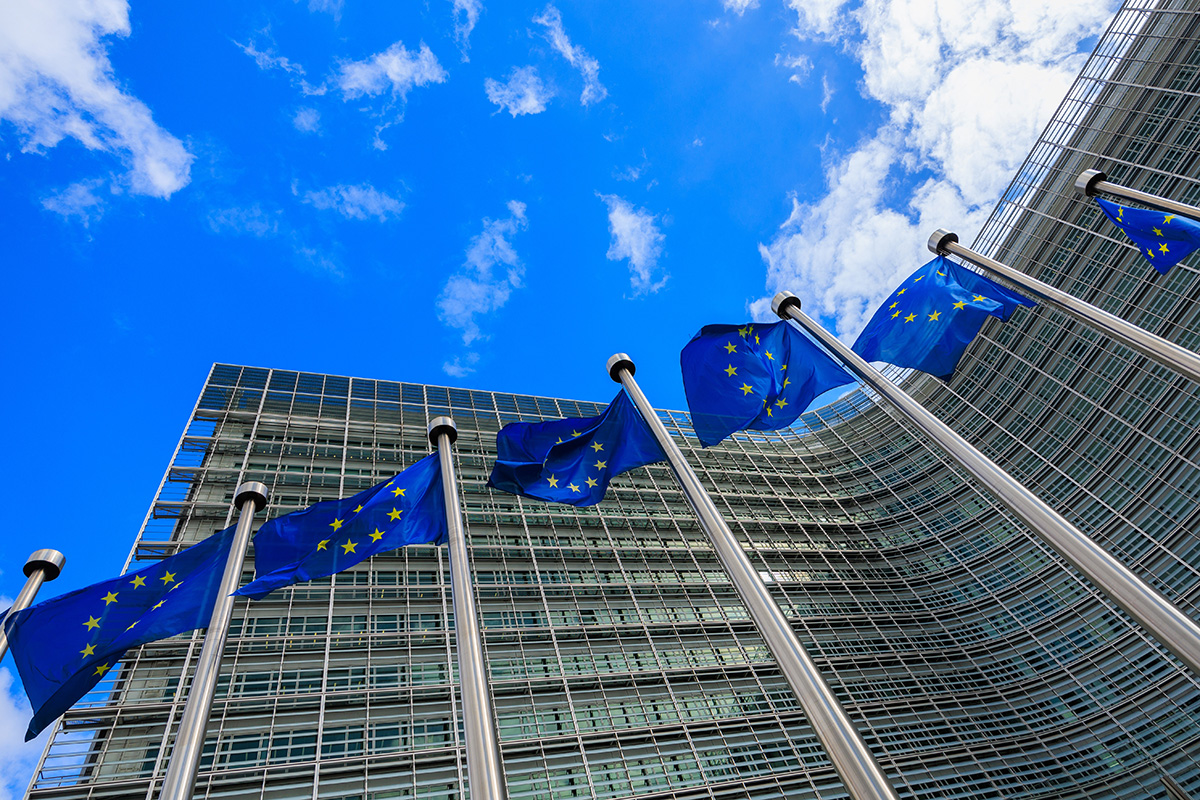
The closure of California reclaimer rPlanet Earth has set alarm bells ringing for the North American plastics recycling industry, as sustainability legislation fails to sufficiently support Europe’s recyclers. | Christophe Licoppe / Shutterstock
In recent weeks, industry calls to action have grown louder about addressing the existential crisis in Europe’s plastics recycling sector, despite the region’s rapidly advancing sustainability mandates.
From a legislative perspective, Europe is well ahead of other global regions, but it is not without its own challenges, leaving the EU recycling industry in an increasingly precarious position. With US plastics recycling infrastructure already showing numerous signs of strain, the scene in Europe could be foreshadowing what lies ahead for North America.
Last week, the reported closure of California-based polyethylene terephthalate (PET) reclaimer rPlanet Earth was the latest domino to fall. Earlier this year chemical recycler Brightmark filed for bankruptcy protection and Evergreen Recycling, which billed itself among the three largest North American RPET producers, closed its sole California location.
Over the summer, North American PET producer Alpek closed a North Carolina plant that represented about 25% of the company’s US RPET flake capacity. And in early 2021, PET reclaimer CarbonLite filed for bankruptcy protection and closed.
In a 2022 interview with Plastics Recycling Update, former CEO Leon Farahnik cited brands’ unwillingness to pay prices reclaimers need to charge for recycled polyethylene terephthalate (RPET) among the factors leading to CarbonLite’s demise.
Three years later, in what was meant to be a turning-point year, many brands have walked back lofty 2025 recycled-content targets. And inexpensive imported resin is disrupting seasonal pricing trends and shouldering much of the blame for the struggles recyclers face both in North America and in Europe.
In late May, a joint letter to EU members noted that competition from China “is intensifying with skyrocketing imports of cheap recycled plastics.” In the US, about 70% of January-July PET imports originated in Asia, with only a nominal amount coming from China, according to International Trade Commission data.
PET imports from January through July rose 6.4% year on year, according to the ITC data, but a more granular analysis is difficult since both virgin and recycled PET are traded under the same tariff codes.
“A key requirement to understand the scope of the ‘import impact’ on recycled plastics markets is improved visibility through trade data,” said Alexandra Tennant, Houston-based director of global recycled plastics at Chemical Market Analytics. “We need to update our outdated trade systems to track materials like recycled content and flake.”
Newly implemented tariffs could help support US RPET, if they are in place long enough and if end-market demand improves.
Describing US RPET as “under severe strain,” the Association of Plastic Recyclers (APR) said in a Sept. 15 statement, “The recent shutdown of rPlanet Earth should be a wake-up call to policymakers in California and across the country,” adding that the closure was not an isolated event. APR owns Resource Recycling, Inc., publisher of Plastics Recycling Update.
Similarly, industry association Plastics Recyclers Europe warned in a Sept. 11 press release, “The European plastic recycling industry is facing imminent collapse.”
PRE added that by the end of the year, the EU will have lost an estimated 1 million metric tons of recycling capacity since 2023, primarily in the Netherlands, Germany and the UK, and that the pace of closing capacity has increased this year.
EU industry response
PRE is not alone in appealing to the European Commission for stronger measures to support the floundering industry. This week, EU Plastics Converters, Petcore Europe and Plastics Europe jointly urged the European Commission and member states to retain a “plastics tax” of €0.80/kilogram (about $875/metric ton), rather than the proposed increase of €1/kg and to put the proceeds into a fund to build the circular plastics economy.
“Increasing the fee at this stage may not lead to environmental improvements, but rather discourage investments in the necessary infrastructures and prompt Member States to seek alternative financing solutions that do not necessarily support waste reduction efforts,” said the three signatories in the Sept. 15 letter.
And in early September, plastics stakeholders including Petcore Europe and several national recycling associations published a joint letter to the Commission, with six strategic recommendations for avoiding industry demise.
However, in January, France will implement a tiered system of financial incentives for using recycled plastics, as part of measures to support its industry. Along with minimum recycled content mandates, the criteria include locating operations throughout the full recycling chain within about a 930-mile radius of the center of France, within the EU or from third countries with environmental standards equivalent to the EU’s.
But in both Europe and North America, what previously was a robust appetite for recycling investments has waned.
“US recyclers are being squeezed out of the market at a time when the nation urgently needs more, not less, domestic capacity to build a truly circular economy,” APR said in its statement. “Europe has already experienced multiple plant closures under similar conditions, and the United States risks following that same path if current policy trends continue.”
More stories about PET

